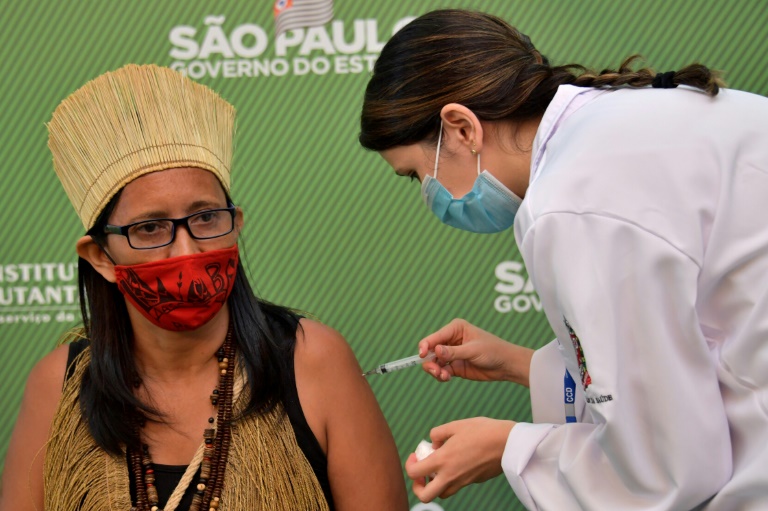RIO DE JANEIRO, BRAZIL – Having suffered heavy loss of human lives since the onset of the COVID-19 pandemic, Brazil’s remote indigenous communities now could finally breathe a sigh of relief as the innoculation campaign against the noval coronavirus comes to their villages.
On Tuesday, January 19th, Brazil’s Health Ministry and Special Secretariat for Indigenous Health (SESAI) officially launched the vaccination campaign in the Umariacu I village in northern Amazonas state, an area bordering Colombia and Peru.

The plan is to innoculate over 400,000 indigenous population, using CoronaVac, a vaccine developed by Chinese biotech firm Sinovac in collaboration with the São Paulo-based Butantan Institute.
The SESAI teams transporting the vaccines arrived via a Brazilian Air Force (FAB) flight to Tabatinga, the region’s largest city, and traveled from there to the village located about 5 km away.
The first indigenous resident of Umariacu I to get the vaccine jab is Isabel Cezerio, 68, a member of the Ticuna ethnic group, who said she appears in all the vaccination campaigns being promoted.
“I am very grateful for the vaccine I received. Thank God I received the vaccine,” Cezerio said in her native language.
Ozimar, an indigenous nurse, told Xinhua the CoronaVac vaccine arrived “at the toughest and most important time of our lives.”
“It is a very important date, because the pandemic has already taken the lives of many people around the world. I believe that today is the most important day we have had here…I am proud to be part of the health teams,” said Ozimar.
According to the SESAI, some 755,000 indigenous people in Brazil are covered by the public healthcare system, of whom 410,000 are over 18 years of age and slated to be immunized, along with 20,000 indigenous healthcare workers.
Immunization is being carried out in approximately 6,000 villages.

